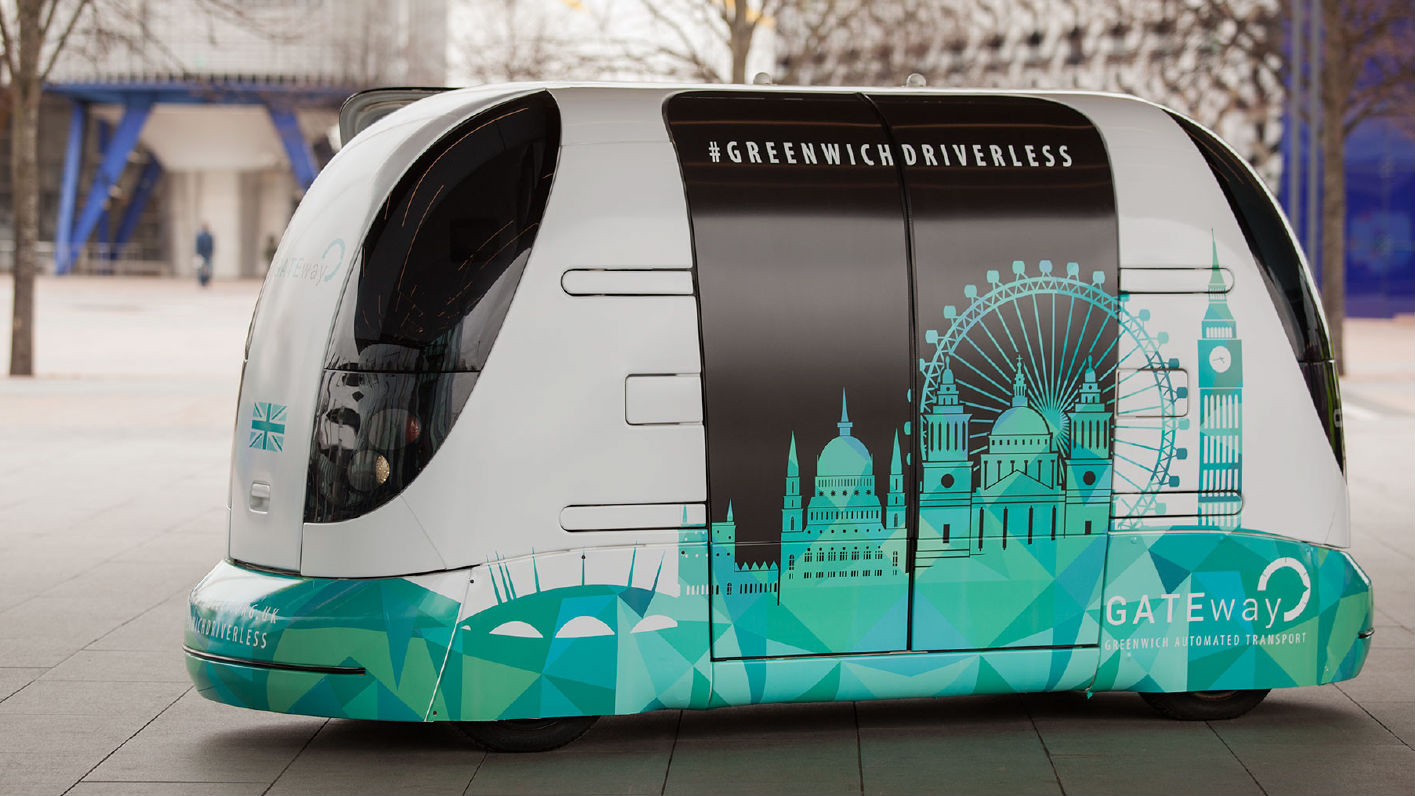Driverless vehicles start first public passenger tests in London
Driverless cars are a-go in London

The self-driving car future we’ve all been promised is coming, but at a pace slower than the speed limit signs on roads surrounding schools.
Now though, that future is taking a significant step closer to reality, with driverless shuttle busses to be trialled in London.
Instead of ferrying around high-vis wearing, clipboard carrying health and safety boffins, however, the extended trial will, for the first time carry general members of the public.
Taking place over the next three weeks, the prototype shuttles will follow a pre-set route around the roads of Greenwich, with around 100 members of the public going along for the ride.
Sadly you’re not just going to be able to simply walk up and jump on one of these road-faring driverless shuttles. Instead, you had to apply for a spot on one of the test runs.
According to Oxbotica, the firm behind the futuristic shuttle, around 5,000 people applied to take part in the tests aboard the driverless vehicles that are limited to a slow and steady 10mph.
The shuttles, which are capable of carrying four passengers at a time, will autonomously navigate a two-mile stretch of the riverside path near the O2 Arena.
Sign up for breaking news, reviews, opinion, top tech deals, and more.
Autonomous vehicle acceptance
Despite the path being shared with pedestrians and cyclists, the shuttle, which uses five cameras and three lasers to help it pick a safe path, features no steering wheel or brake pedal.
However, despite being controlled by a computer, during the tests, a trained driver will also be on board who can stop the shuttle in case of an emergency.
"Very few people have experienced an autonomous vehicle, so this about letting people see one in person," said Oxbotica chief executive Graeme Smith.
Speaking with the BBC he added: "We hope to gain acceptance from members of the public for vehicles sharing this kind of space with them. We are also looking at how people in the vehicle respond when being transported from A to B.”
The shuttle, which can see up to 100 metres ahead, is capable of performing emergency brake procedures if required and, if this month’s trials are successful, could be ferrying passengers in Greenwich on a more regular basis from 2019.
"The UK has a history of innovation in the auto sector and this type of technology has the potential to save lives as well as offer freedom to the elderly or those with mobility impairments,” said Industry Minister Nick Hurd.
Oxbotica’s Dr Smith added: "It's been designed to be safe and fail-safe specifically in a pedestrianised environment.”